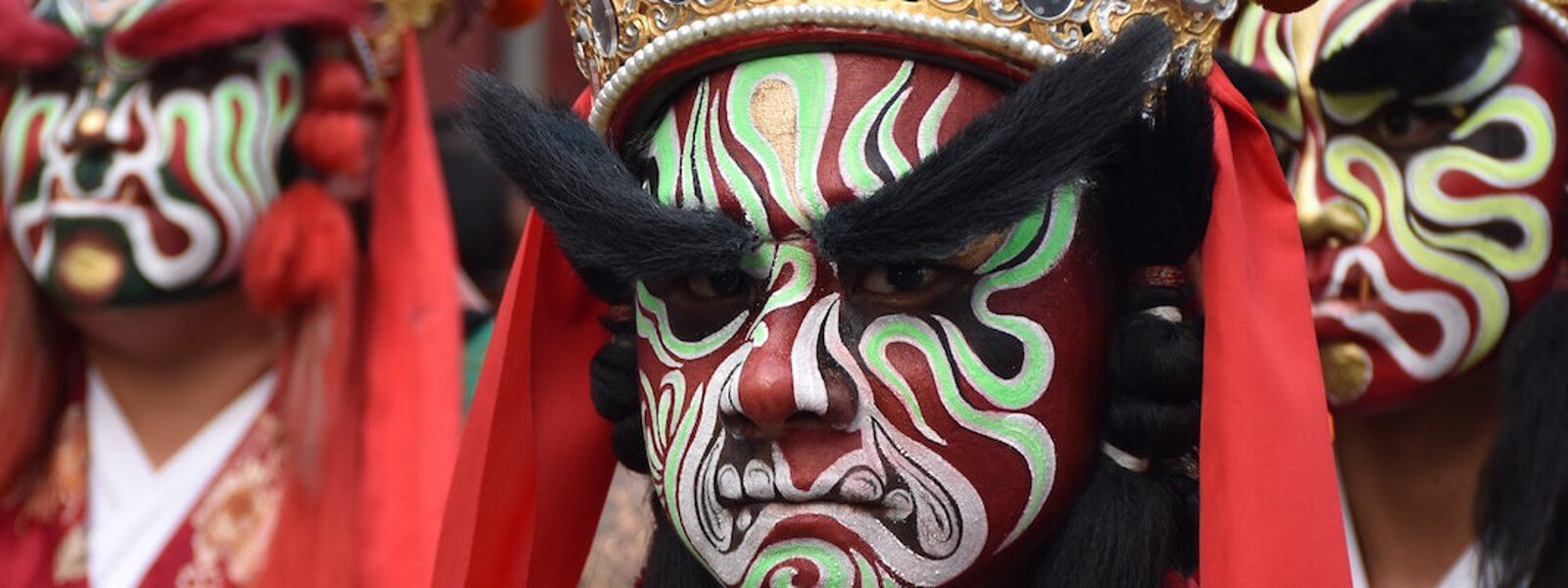There are three types of discrimination based on the experience of self and others. We also refer to them as the three types of conceit. I am talking about feeling superior, inferior or equal in comparison to others. Conceit – not only in the sense of pride – is very common and therefore it makes sense to discuss and explore it further. This article will be a bit more advanced in nature so if it doesn’t resonate, simply drop it 😉
The conceit of “I am superior”
The statements: “I am superior”, “I am better”, “he or she is worse than me” point to this type of conceit. The basic task of conceit is the fabrication and maintenance of our sense of self. “I-making, me-making or mine-making”, as the Buddha calls it. in this case the sense of self is strengthened by comparing itself to someone or something that’s perceived as being inferior. The feeling of superiority inflates the self/ego and keeps it alive for a little longer.
While it might be true that we are superior at the performance of a certain skill, it is not the self that is superior. And here is where the root of the confusion lies. We tend to heavily confuse activities or other conditions as being “me” or pertaining to a “me“. This is in fact a pretty profound topic in itself so I won’t go into it too deeply today. To make it short, I believe that it is not just a single action or a series of activities that defines a living being in its entirety as inferior, superior or equal.
I consider the perception of me being a superior entity as such deeply flawed as it disregards an infinitude of potential as well as the entirety of past experiences and imprints of myself or another. It reduces a living expression of this vast universe to a single limited judgment.
The conceit of “I am inferior”
“I am inferior”, “I am worse”, “he or she is better than me” point to this inferiority complex. Again, it is not the person as such that is better or worse. Your actions might be either skillful or unskillful, leading to suffering or happiness. This doesn’t mean however that your entire being is inferior, unworthy or bad. We often tend to get trapped in guilt or shame patterns based on the idea that “I am fundamentally flawed or unworthy and everyone else is deserving happiness and kindness because they are just better people.”
This would be a perfect example of reducing our entire potential with a single devastating judgment. In this case, the ego strengthens and feeds itself by using the perception of inferiority. It doesn’t matter if I am perceiving myself as superior or inferior. What matters is that I feel very much like a self when I attach to such ideas.
The most subtle state of conceit is the feeling “I am” as such. It is said to be the last obstacle that dissolves before full enlightenment occurs. The perceptions of better, worse or equal are in a way additions to the basic “I AM-state”. We could say that the self doesn’t want to dissolve. It wants to stay alive and loves to expand, so it will use anything within its reach to accomplish that. Our sense of self feels comfortable playing roles such as the inferior, equal or superior act. Either one of those acts give the self the necessary strength to survive.
The conceit of “I am equal”
“We are all the same”, “we are all one”, “I am just like you are” all pointing to this type of conceit. While we might share certain qualities, traits or activities with other people it doesn’t mean that we are the same being. Being the same person and wearing the same clothes are two vastly different points. We could indeed say that we all equally share the wish for happiness and well-being but we are pursuing it in many different ways. Even our understanding and personal interpretation of this present text varies greatly.
When one of us experiences joy it doesn’t mean that all of us experience exactly the same joy at the same time. This clearly shows that we are not one and the same person but different. Even some of the proponents of the idea that “we are all one” can become quite aggressive when someone else disagrees with their views. It all shows that such poetic and philosophical ideas might sound inspiring and nice but aren’t necessarily rooted in an experience of the way it is.
Having said all that I would still propose that we are one when it comes to certain basic experiences, traits and ideas. We exist in a profoundly interconnected way so each and every action goes a long way unfolding in infinite patterns affecting people and things. We are all subject to the experience of dissatisfaction and the wish to be at peace for example. Seeing that we have these fundamental desires in common allows us to connect and understand each other. This in turn can give rise to compassion, kindness and forgiveness. I think it is highly meaningful and vital to reflect not on what separates us but on what we have in common
Me and Mine-Making
The ego is continually busy getting reborn into various states. It identifies with emotions, sense perceptions, thoughts, perceptions and bodies so that it can maintain its integrity and structure. It wants to appear as a continuous and logical entity, separate from everything else that exists around it. “Me and/in the universe” is a funny little statement showing exactly this idea of separation. This separate projected entity suffers its own existence trying to find wholeness, meaning and something permanent or reliable to hold on to. All it encounters is change, separation and the eternal struggle to keep things from falling apart.
This little me wants to stay alive. It secretly fears the light, the greatness and space of awareness. It loves to remain hidden in the shadow and it’s ready to defend its house with fierce power. Every time we feel superior, inferior or equal it shortly reveals its structure and mechanisms. That gives us a chance to understand it, receive it with kindness and look through its apparently powerful facade. We might be very surprised to find light and great space behind those walls. This light, this awareness offers an entirely different lifestyle which is totally devoid of suffering and self-inflicted misery.
This is what we refer to as “ inner peace”. One who has discovered the deepest conflict between a projected self and the rest of this universe is free to let go and experience peace. The various shadows that we encounter simply act as a pathway leading towards the light of awareness. Comparison, judgments and conceit simply point to our tendency to proliferate and prolong the experience of “me” and “mine”. Those who are ready to go beyond themselves can use such tendencies for deeper reflection.

